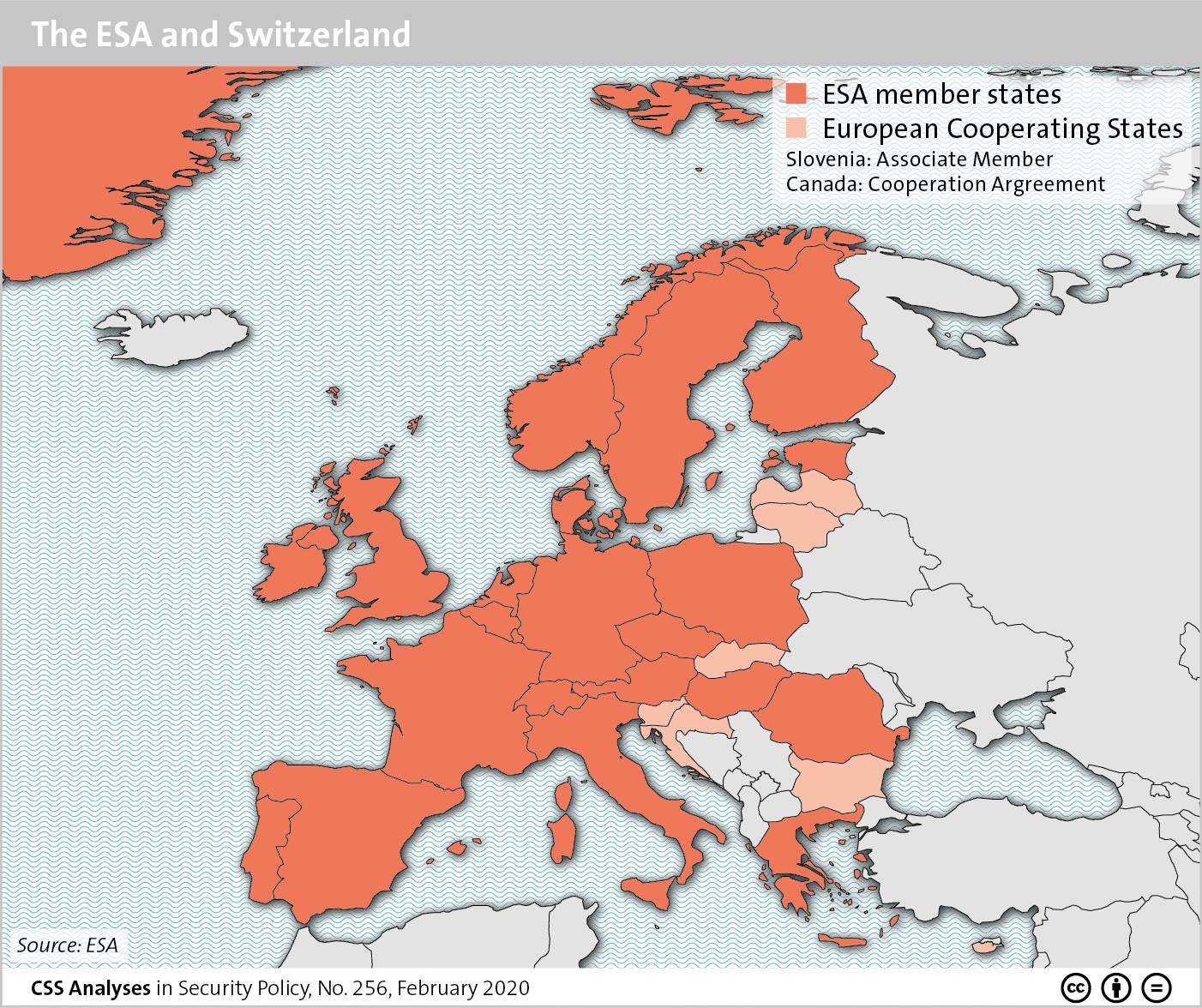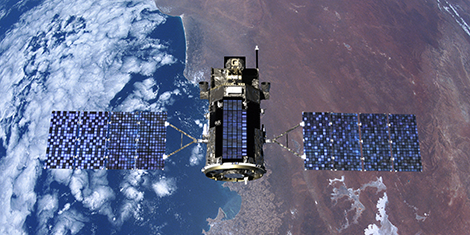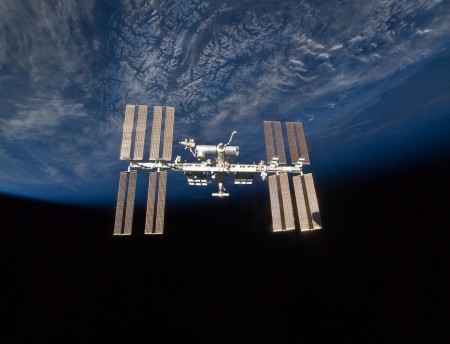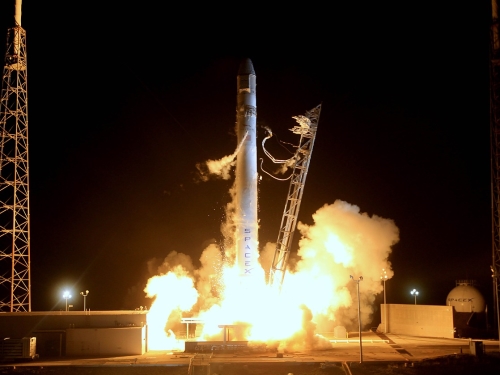
This week’s featured graphic provides an overview of the European Space Agency (ESA) member states and more. For an insight into space security and technological development, see Michael Haas’ CSS Analysis in Security Policy here.

This week’s featured graphic provides an overview of the European Space Agency (ESA) member states and more. For an insight into space security and technological development, see Michael Haas’ CSS Analysis in Security Policy here.

Mankind’s dependence on space-based services has grown exponentially in the last few decades. As early as 1994, the UN noted that “space has become an important factor in the social and economic well-being and development of many States”. Today, a growing number of experts argue that sustaining modern life in an increasingly interconnected world will not be possible without ensuring the sustainable use of outer space. From instant communication and the use of global positioning systems, to weather forecasting and environmental monitoring, space technologies bring us irreplaceable and far-reaching benefits, which must be protected responsibly.

This article was originally published by War is Boring on 24 November 2016.
The best defense is a good offense — or is it? The answer to this question, along with an understanding of the stronger form of warfare, is the single most important consideration in U.S. space strategy and funding major space programs.
Satellites and other spacecraft have always been vulnerable targets for America’s adversaries. Today, attacking U.S. on-orbit capabilities offers the potential to cripple U.S. conventional power projection and impose significant costs, whether in dollars, lives or political capital.
Many strategists and policymakers have concluded that because space-based systems are seen as exposed to attack — with little way to defend them — that the offense is the stronger form of warfare in space. This conclusion is incorrect and has led to an underdeveloped U.S. space strategy.
Time-tested theory and principles of war underscore that the defense is the stronger form of warfare in space.

This article was originally published by War on the Rocks on 6 May 2016.
In the latest sign of how new entrants are upending the space launch industry, the Air Force announced last week that an $83 million contract awarded to SpaceX to put a GPS satellite into orbit would cost the government 40 percent less than the competing bid from United Launch Alliance (ULA), a joint venture of Boeing and Lockheed Martin. As impressive as that is, SpaceX’s competitiveness is set to increase further after the firm achieved a milestone in the history of space exploration. After numerous failed attempts, SpaceX successfully landed the first stage of one of its rockets on a “drone ship” floating in the Atlantic Ocean. The rocket’s payload, a cargo delivery to the International Space Station (ISS), was successfully lifted into orbit.
The achievement is a first step towards the reuse of SpaceX rockets (or more precisely the first of the rocket’s two stages), which previously would be lost after a single use. The next step will be to attempt to refurbish and reuse a rocket — potentially many times over — at acceptable cost and risk. The Space Shuttle’s solid rocket boosters parachuted to sea and were recovered by ship, but they did not themselves lift payloads into orbit and were very expensive to refurbish. Another rocketry firm, Blue Origin, has also managed to safely land its rockets after launch, but those are sub-orbital vehicles not meant to reach the ISS or place satellites aloft. ULA has studied reusability but has not implemented it.
The major implication of rocket reusability – and the reason it has been so feverishly pursued — is to reduce the price of placing a payload into orbit. SpaceX’s per-launch price is reportedly $60 million, well below the $200 million charged by ULA or the $137 million charged by Europe’s Arianespace launch consortium. Rocket reuse stands to reduce SpaceX’s price even further, to perhaps just $40 million. To put that in perspective, it is about the same as it costs to stage the Oscars.

A few weeks ago, Space X’s Falcon 9 rocket carrying an unmanned Dragon capsule destined for the International Space Station (ISS) exploded. The explosion was likely caused by a failed strut. In October of last year, Orbital Sciences had a rocket destined for the ISS explode for unrelated reasons, just after they were awarded a $1.9 billion contract with NASA. In the wake of these incidents, it may be time to assess the implications of private sector involvement in state-sponsored space programs.